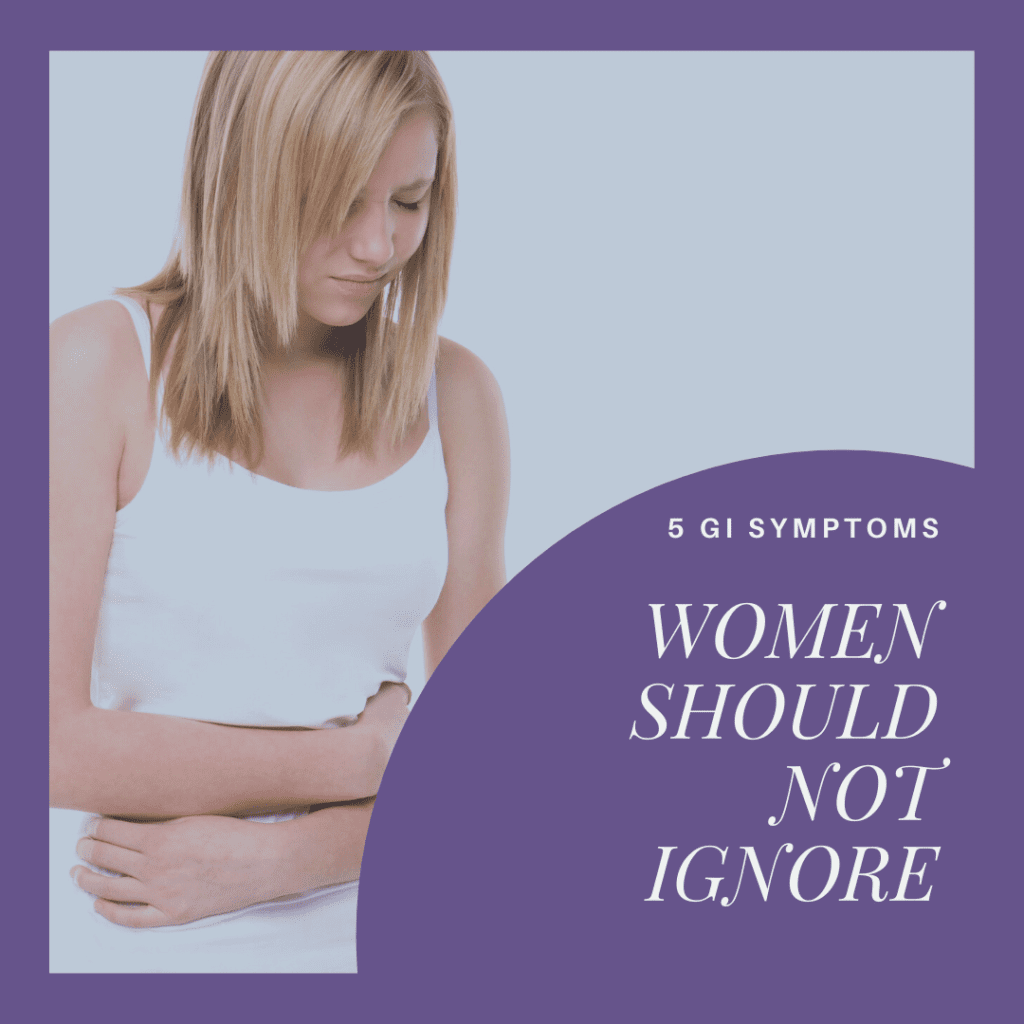While women primarily associate gynecological visits with their reproductive health, it is important to remember that gynecologists are also specialists in women’s health. This means that they are aware of certain medical conditions that may affect women differently or more frequently than men. For this reason, it is important to tell your gynecologist about symptoms you’ve been experiencing, even if you don’t think they are related to your reproductive health.
In fact, some symptoms you should never ignore are gastrointestinal (GI) symptoms, especially if these symptoms last longer than a few weeks, interrupt your sleep, or affect your daily routine. While some GI symptoms may be related to your reproductive health and can be treated by a gynecologist, others may require a referral to the appropriate specialist. Here are five GI symptoms that you should never ignore:
Abdominal Pain
When women experience abdominal pain, most of the time they just attribute it to being stomach pain. However, there are a number of other structures in the abdomen that can be the cause of abdominal pain. In fact, there are a number of other conditions that can cause severe abdominal pain, including: uterine fibroids, endometriosis, and cystitis. Therefore, it is important to tell your gynecologist if you’ve been experiencing abdominal pain, where the pain is coming from, and how long it has been going on.
Changes in Bowel Habits
Changes in how frequently you go, as well as changes in the consistency of your stools are also things you should mention to your doctor. Diarrhea, constipation, and painful bowel movements are also common symptoms of endometriosis. Unfortunately, many gastroenterologists tend to miss this diagnosis since they only look at the digestive tract. As a result, many women are incorrectly diagnosed with IBS.
Bloating

Bloating occurs when the GI tract fills with air and makes your abdomen feel full and tight. For many women, bloating is a common symptom of PMS since it tends to occur as a result of hormone fluctuations. For this reason, many women are not concerned about bloating. On its own, bloating usually isn’t serious. However, when accompanied by other GI symptoms, bloating could indicate a problem. In fact, bloating is one of the most common symptoms of endometriosis.
Frequent Heartburn
Despite the fact that there are a variety of over the counter ways to relieve heartburn, if you are experiencing heartburn regularly, you should mention this to your doctor. In some cases, heartburn can be a sign of pregnancy, since higher levels of progesterone relax the lower esophageal sphincter and allow stomach acid to escape into the esophagus.
Blood in the Stool
Seeing blood in your stool can be scary and it is definitely something you will want to mention to your doctor. There are a variety of reasons why you may have blood in your stool, ranging from hemorrhoids to cancer. Blood in the stool is also a common symptom associated with inflammatory bowel disease (IBD). In cases where endometriosis lesions have affected the bowel, this can also cause blood in the stool, as well as painful bowel movements.

Dr. Geoffrey Zann is a Certified Robotic Da Vinci Surgeon, Board-certified by the American College of Obstetricians and Gynecologists, and a Diplomat of the American Board Obstetrics of Gynecology. He has been a member of the American Society for Colposcopy and Cervical Pathology, American Association of Gynecologic Laparoscopists, and the Hugh R. K. Barber Obstetric and Gynecologic Society.
